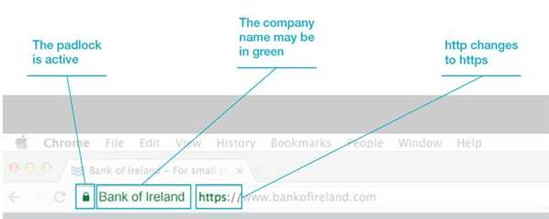Fraudsters are highly skilled at creating fake websites that appear genuine and persuade shoppers to share their payment information. Fake adverts can even be found on genuine sites or you may even find an advert after seeing someone you know sharing it online. Many scams are centred around vehicles like camper vans and tractors, while others create websites to look like well-known companies like clothing brands.
- Include prices which are too good to be true.
- Use wording which implies the seller is looking for a quick sale.
- Don’t give you the opportunity to see the item in person.
- Pop up on your social media feed (fraudsters can pay to have their ads in front of you).
- Always go directly to a company’s website to make a purchase. Type their web address into your browser or search for them using a search engine like Google or Bing.
- Do not click on links listed on websites, emails or social media. They are not always safe.
- When entering login details or personal information, check for the following:
- Does the website look legitimate? For example, look at the language, spelling, and image quality used.
- Has the web address (URL) changed from ‘http’ to ‘https’? Fake websites still use ‘https’ so don’t go by this alone.
- Is there a closed padlock icon present?
- Is your browser address window green?
- Only buy from reputable retailers. If it’s not a well-known shopping site, do some research. Look for independent reviews on other websites, rather than trusting testimonials on the site itself.
- Do not make card payments on shared or public computers.
- Log out of the website completely when you have finished.

Fraud, suspicious activity or unauthorised transactions?
To report online fraud, suspicious activity, unauthorised transactions on your account or ATM fraud, please contact us as soon as possible using our freephone numbers listed below.
Report a suspicious email or text
To report suspicious Bank of Ireland related emails or texts (both personal and business customers), send the suspicious email or text to 365security@boi.com.
Shared your online login details?
If you’ve shared your banking details in response to a suspicious email, text or call, please notify us as soon as possible using our freephone numbers listed below.
Emergency Contact Numbers
Republic of Ireland
Freephone: 1800 946 764 (personal and business)
Great Britain & Northern Ireland
Freephone: 0800 121 7790 (personal and business)
Everywhere outside Republic of Ireland, Great Britain & Northern Ireland
Not Freephone + 353 1 679 8993
Not Freephone + 353 56 775 7007 (Lost/Stolen cards or smart device)